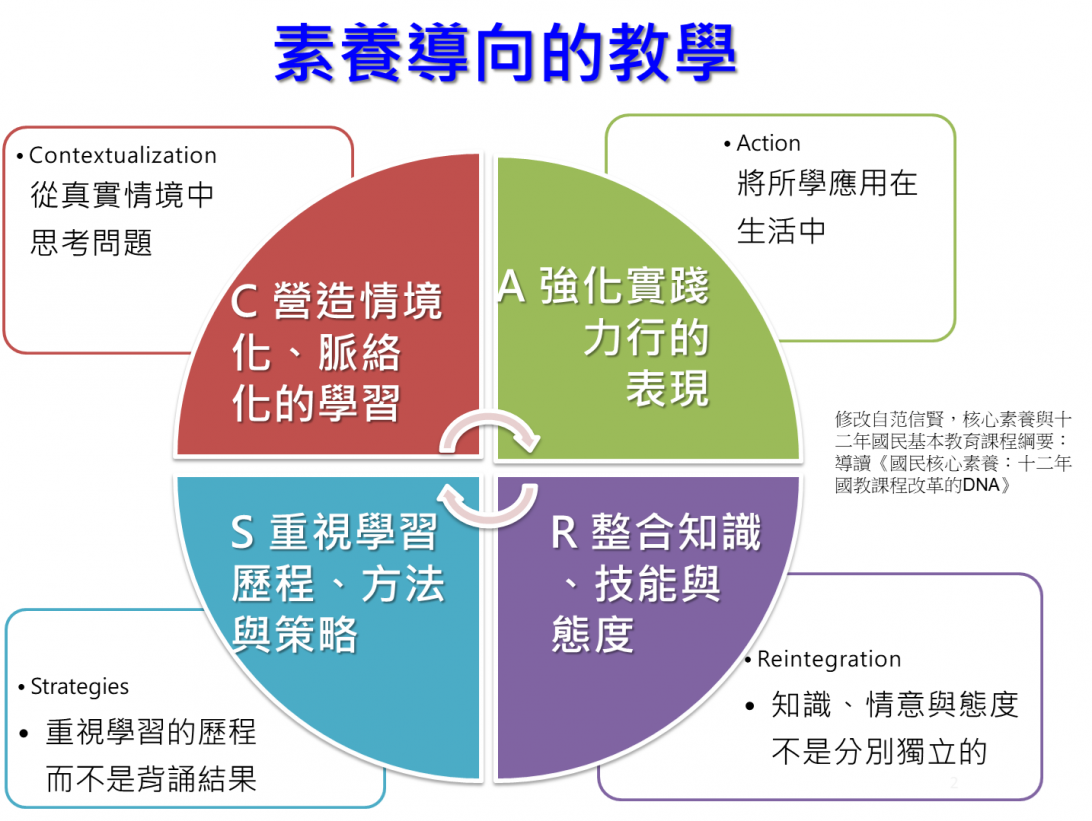Elementary English Learning competence Indicators
The First Learning Stage competence indicators in “Elementary and Junior High School Nine-Year Education Program Curriculum Guidelines, Language Arts Learning Area, English”[@more@]
1. Language abilities
(1) Listening
Elementary school level
1-1-1 Being able to identify basic English speech sounds
1-1-2 Being able to identify basic vocabulary, phrases, and sentence stress patterns.
1-1-3 Being able to identify the intonation of questions and statements.
1-1-4 Being able to understand common classroom and daily life expressions.
1-1-5 Being able to understand simple sentences and dialogs.
1-1-6 Being able to understand the main contents of simple songs and rhymes.
1-1-7 Being able to understand the main contents of simple children’s stories and plays by visual aids like pictures, puppets, and physical actions.
(2)Speaking
Elementary school level
2-1-1 Being able to read the alphabet with the correct pronunciation.
2-1-2 Being able to read common basic words correctly.
2-1-3 Being able to say simple sentences with the correct stress and intonation.
2-1-4 Being able to participate in oral practice in class.
2-1-5 Being able to introduce oneself in simple English.
2-1-6 Being able to use simple classroom expressions.
2-1-7 Being able to use basic social mannerism terms.
2-1-8 Being able to make simple questions, answers, and statements.
2-1-9 Being able to chant simple songs and rhymes.
2-1-10 Being able to make simple English speech triggered by pictures.
2-1-11 Being able to perform simple role plays prompted by pictures and suggestions.
2-1-12 Being able to participate in simple children’s plays.
(3)Reading
Elementary school level
3-1-1 Being able to identify letters of the alphabet.
3-1-2 Being able to read words by using phonics.
3-1-3 Being able to identify some sight words.
3-1-4 Being able to understand simple English signs.
3-1-5 Being able to identify common words in stories, rhymes, and songs.
3-1-6 Being able to read and understand simple sentences.
3-1-7 Being able to follow the teacher or audio tape in chanting simple songs and rhymes.
3-1-8 Being able to follow the teacher or audio tape in reading dialogs or stories aloud from the textbook correctly.
3-1-9 Being able to read and understand approximate contents of simple children’s stories and plays by visual aids like pictures and diagrams.
(4)Writing
Elementary school level
4-1-1 Being able to write printed capital and small letters.
4-1-2 Being able to write one’s own name.
4-1-3 Being able to copy the words previously learned.
4-1-4 Being able to copy or imitate simple sentences.
4-1-5 Being able to spell and write some common basic words.
(5)General Application Abilities
Elementary school level
5-1-1 Being able to identify, read, and write 26 letters.
5-1-2 Being able to understand and identify some common English words used in daily life communication.
5-1-3 Being able to master at least 200 colloquial vocabulary items productively, and being able to spell and write at least 80 of them that could be used in simple daily life communication.
5-1-4 Being able to understand English spelling and pronunciation correspondences by applying phonics, and being able to try to sound words out.
5-1-5 Being able to understand some common sentences in daily life (like greetings, acknowledgements, apologies, farewells, etc.), and being able to respond to them properly.
2. The Interests and Methods in Learning English
Elementary school level
6-1-1 Being able to pay attention to the teacher’s instruction and demonstration.
6-1-2 Willing to participate in all oral practice activities.
6-1-3 Willing to answer questions from the teacher or classmates.
6-1-4 Being able to ask questions of the teacher or classmates actively.
6-1-5 Being full of curiosity, and being able to add examples or counterexamples to teacher or classmates’ discussion.
6-1-6 Accomplishing homework actively.
6-1-7 Showing an interest in extracurricular English teaching materials.
6-1-8 Being able to notice learned English words in life or media.
6-1-9 Willing to enquire about the meaning of English words and trying to imitate them when meeting them in life.
6-1-10 Willing to try to use English whenever there’s a chance in life.
3. Culture and Customs
Elementary school level
7-1-1 Being familiar with the main festivals and customs abroad.
7-1-2 Being able to understand the English expressions of our main festivals and customs.
7-1-3 Being able to understand what is considered to be good manners internationally.












